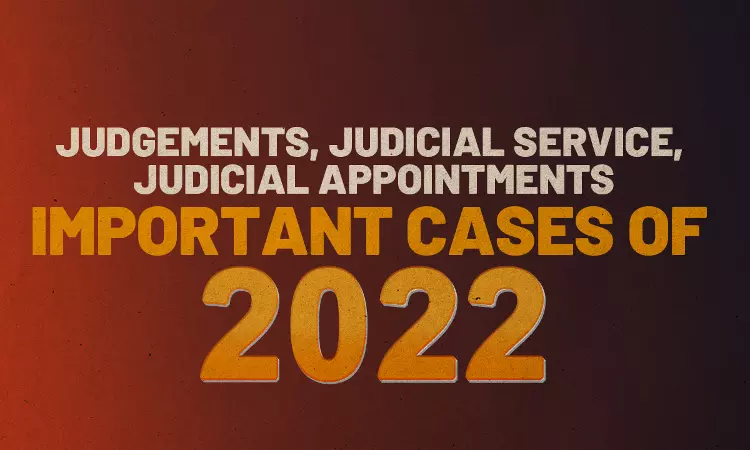Next Story
22 Jan 2023 6:28 PM IST
Judges Appointment Judges Appointment - Collegium reiterations are binding - Supreme Court asks Centre to explain by reiterated names are sent back to the collegium- 10 names reiterated by the Supreme Court collegium sent back by the Central Government- SC asks Attorney General as to how under the Scheme of law prevalent, are reiterated names sent back - Refers to para 486, clause 5...

